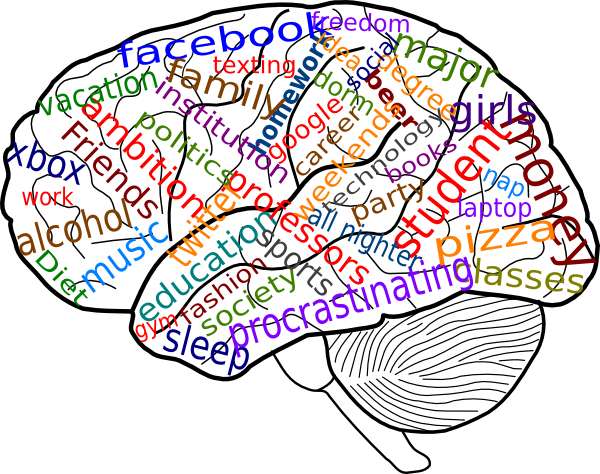THE DEATH OF READING? PSHAW!
The reports of the death of reading appear to be greatly exaggerated (apologies here to Mark Twain). Shorter attention spans or not, many people insist they are reading more than ever. Or so suggests my admittedly unscientific poll — of readers.
The poll is skewed toward self-proclaimed readers. And my awesome, curious, brilliant, thoughtful friends. So I cannot claim that its findings represent the great unwashed masses. Even so, when I asked last month if modern life and its distractions had killed reading, the answer was a resounding “No!”
Modern Distractions
Not only do most serious readers say they read as much as ever, but few think that technology has seriously eroded their ability to reap the benefits of the written word.
Just how they do that, however, may have changed.
Let me start with the downer part. Some people did tell me that they were reading fewer books these days — or, at least, fewer traditional books. The problem, just as predicted, amounted to modern life and its distractions.
Painter and photographer Diane Burko of Philadelphia, for example, said she is definitely reading less, mainly because she is “doing more stuff.”
Even here there is a bright side, at least for the authors among us (in addition to the good “stuff” that Diane is doing — and it is super good, so check it out!): she is still buying books. She just can’t find the time to read them.
Several other people told me similar stories. They were sad that they were reading less but saw no solution. No one said it was hard to concentrate. But several acknowledged that modern diversions were too enticing to sacrifice to the long hours they once devoted to reading.
Personally, I think a short attention span may actually be an asset when it comes to taking in all those headlines that float across our screens every day. So much stuff floats in front of our faces, it may feel like we’re not reading much of it. It stands to reason that we end up reading a smaller percentage of available material. And much of this reading is done in chunks, not sustained sessions.
Reading More Than Ever

Still, many people insisted that they are reading as much as ever, if not more.
“I don’t think social media affect the amount I read, but well may affect other things I do, i.e., time that should be spent doing more productive things,” said Margo Keyser of Waldorf, MD. “I probably read about 150 books a year, many with no redeeming social importance, but just for entertainment. That’s probably about the same amount that I’ve always read.”
As for Jeanne Gallagher of Worcester, MA, the modern world, if anything, has fueled more reading than ever. While her fiction reading has fallen off, she says more than compensated for that by reading considerably more nonfiction, especially memoirs and history books.
The NIMBY Syndrome
You know how most people think American schools are awful but insist their own kids’ school is great? Perhaps a similar NIMBY-like thing happens with reading. We seem to think the rest of world has stopped reading much even though we personally say we are reading more than ever.
Here’s how Michael Collins of Arnold, MD puts it: “I like to read — I read all genres. I love a good novel, also non-fiction if well written. I am not reading less than earlier. That said I do believe that reading is on the wane with the general population.”
Perhaps he is right. As a teacher, he spends time in local classrooms, where, undoubtedly, he sees how much the next generation is reading. But the responses I got suggest that reading is alive and well — at least if you have a liberal definition of “reading.”
Reading Smarter
As Ann Gallagher of Bethesda, MD told me, “I’m reading more [but] in different ways.”
My husband J.H. Snider said pretty much the same thing: “I’ve shifted from physical to audio books, with a net increase in ‘reading’ as a result. Insofar as increased traffic leads to more audio book consumption, I’d be an optimist about the future of book ‘reading.'”
More ways to read mixed with more time to read is even better, of course. And some lucky people are in places in life where those two still mix. One of them, Maribel Cabrera Ibrahim, the facilities and capital projects manger at the Anne Arundel County Public Library, says that these days her reading list comprises ebooks, a few audiobooks, and “good old-fashioned hardback” books. “I’m actually reading more books for fun now that my kids are older! … I love working for the library!”
All these stories made me think that those reports about the death of reading reflect a narrow and outdated definition of reading. We may well be reading more than ever. But we are more flexible about what we read and how we read it. And more selective. With so many books, and so little time, that seems like a wise adaptation.
Terra Ziporyn
TERRA ZIPORYN is an award-winning novelist, playwright, and science writer whose numerous popular health and medical publications include The New Harvard Guide to Women’s Health, Nameless Diseases, and Alternative Medicine for Dummies. Her novels include Do Not Go Gentle, The Bliss of Solitude, and Time’s Fool, which in 2008 was awarded first prize for historical fiction by the Maryland Writers Association. Terra has participated in both the Bread Loaf Writers Conference and the Old Chatham Writers Conference and for many years was a member of Theatre Building Chicago’s Writers Workshop (New Tuners). A former associate editor of the Journal of the American Medical Association (JAMA), she has a PhD in the history of science and medicine from the University of Chicago and a BA in both history and biology from Yale University, where she also studied playwriting with Ted Tally. Her latest novel, Permanent Makeup, is available in paperback and as a Kindle Select Book.
- Web |
- More Posts(106)
